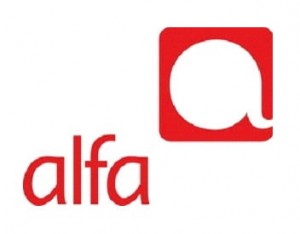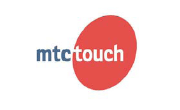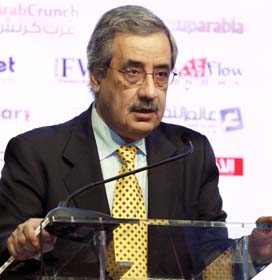
Mobile phone shops in Lebanon are crammed with handset and BlackBerry cases in a dazzling variety of colours and textures.
In contrast with the range of accessories on offer, however, customers can only opt for one of two service providers. Both Alfa and MTC Touch, the country’s mobile phone operators, are controlled by the state, and both charge some of the highest tariffs in the region for what are widely viewed as under-developed services.
 Mobile phone shops in Lebanon are crammed with handset and BlackBerry cases in a dazzling variety of colours and textures.
Mobile phone shops in Lebanon are crammed with handset and BlackBerry cases in a dazzling variety of colours and textures.
In contrast with the range of accessories on offer, however, customers can only opt for one of two service providers. Both Alfa and MTC Touch, the country’s mobile phone operators, are controlled by the state, and both charge some of the highest tariffs in the region for what are widely viewed as under-developed services.
“The quality of service is very poor,” says Nassib Ghobril, the chief economist and head of research at Byblos Bank. “Lebanon used to be a leader.”
Lebanon was among the first Arab countries to introduce internet and mobile phone services in the mid-1990s. Since then however, in spite of undertakings to liberalise the sector, the state has continued to monopolise telephony and dominate internet service provision. MTC Touch and Alfa are operated for the government under management contracts by Zain of Kuwait and Orascom of Egypt, respectively.
Now Lebanon is ranked below the regional average in a 2010 survey of connectivity in the Arab world by the Arab Advisors Group, a research and consultancy specialising in media markets, trailing not only the Gulf countries but also Libya and Algeria.
According to the Lebanese Broadband Stakeholders Group, a coalition of professional bodies, companies and non-governmental organisations lobbying for faster internet access, the maximum connection speed available in Lebanon is currently only about 1 megabit per second.
Businesses need at least 100Mbit/s in order to obtain the full benefits of voice-over internet, video-conferencing and data-sharing programmes their competitors are using, according to the group.
Moreover, a 1Mbit/s residential connection in Lebanon costs $87 a month, compared to a regional average of $55.50 and, according to the Telecommunications Regulatory Authority, only 18 per cent of households have the DSL connection which facilitates higher speeds.
Although mobile phone penetration has increased dramatically since a reduction in tariffs last year, the Arab Advisors Group still ranks Lebanon’s pre-paid rates as the second most expensive in the region.
The economic costs of Lebanon’s connectivity deficit are substantial. A recent World Bank report argued that Lebanon could have suffered an opportunity cost of as much as $435m in 2008.
 Earlier this year, Charbel Nahas, the telecommunications minister, revealed plans to invest $160m in laying infrastructure to support high speed broadband internet and third generation mobile phone services, such as mobile broadband and video calls.
Earlier this year, Charbel Nahas, the telecommunications minister, revealed plans to invest $160m in laying infrastructure to support high speed broadband internet and third generation mobile phone services, such as mobile broadband and video calls.
The investment, he claims, will break bottlenecks in the sector. While industry experts welcome this additional capacity, the announcement has also intensified arguments over what the role of the state should be in public service provision in Lebanon.
A 2002 telecommunications law calls for Ogero, the state-owned fixed line company, to be dissolved into a new company, Liban Telecom, which would be administered separately from the ministry of telecommunications.
The law also established the TRA, which was supposed to pursue privatisation of the two state-owned mobile phone companies. Yet none of this has happened.
Institutional inertia and the vested political and economic interests encountered in attempting to reform any public service provider in Lebanon are partly to blame, analysts say. “If [a service] is efficiently run they [government ministers] would lose control over it,” explains Jad Chaaban, president of the Lebanese Economics Association.
Moreover, Mr Nahas, an opposition politician from the Free Patriotic Movement party of Michel Aoun with a background in economics and anthropology, is seen as a vigorous ideological opponent of privatisation, for which he argues the timing is not yet right.
Not only, says Mr Nahas, ought infrastructural upgrades to be completed before privatisation (which he estimates will take 16 months) but also the mobile phone companies’ contribution to the treasury’s coffers (estimated to be at least $1bn a year) needs to be considered.
According to Mr Nahas, only about a third of the price of mobile phone tariffs reflects the costs of operating. “The sector has been transformed into a tax collection system,” he says.
If the state-owned mobile companies were to be sold without addressing the fiscal issues, Mr Nahas argues, the finance ministry would have to charge such a high price for them that the companies would have to pass it on to the consumer.
“He’s just saying that because he doesn’t believe in the private sector,” says Mr Ghobril at Byblos bank.
Supporters of privatisation, like Mr Ghobril, argue that taxes on the additional economic activity generated by competitiveness would compensate for the loss of revenues.
There are also concerns that as the ministry of telecommunications will own the new infrastructure while the state-owned service provider remains under its management, Ogero’s dominance over internet service provision will be reinforced.
Even if the ministry’s investment programme succeeds in making faster internet and 3G phone services widely available, some fear that Lebanon has fallen so far behind that constantly evolving technology will make it difficult to catch up.
As one international observer remarks: “We shouldn’t be talking about 3G in 2010. We should be talking about 4G.”
By Abigail Fielding-Smith in Beirut

Leave a Reply
You must be logged in to post a comment.